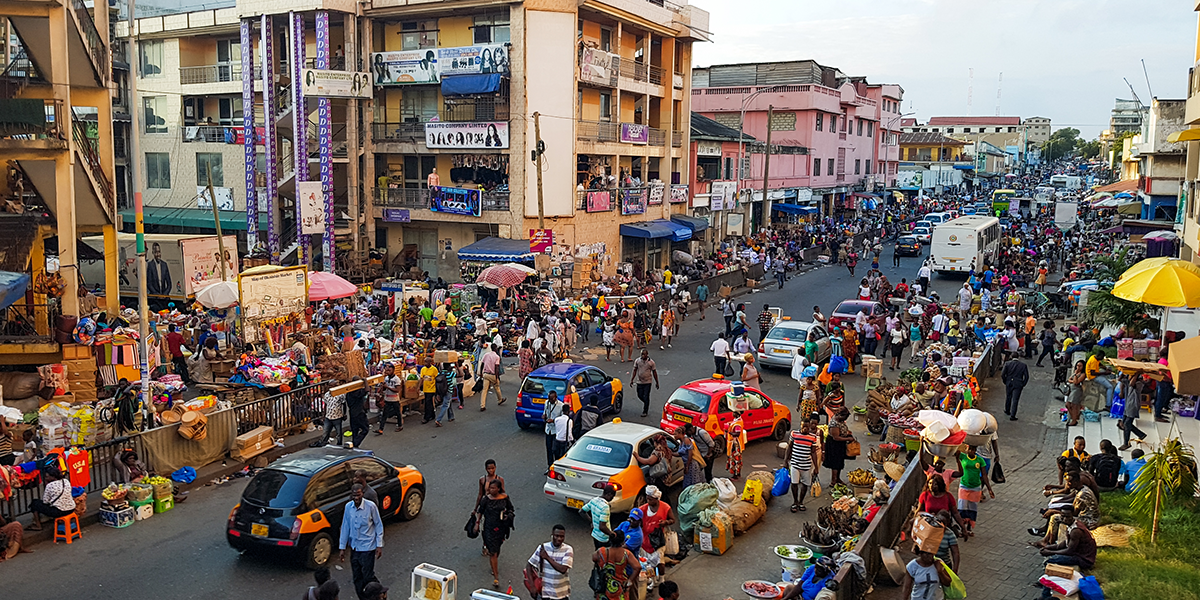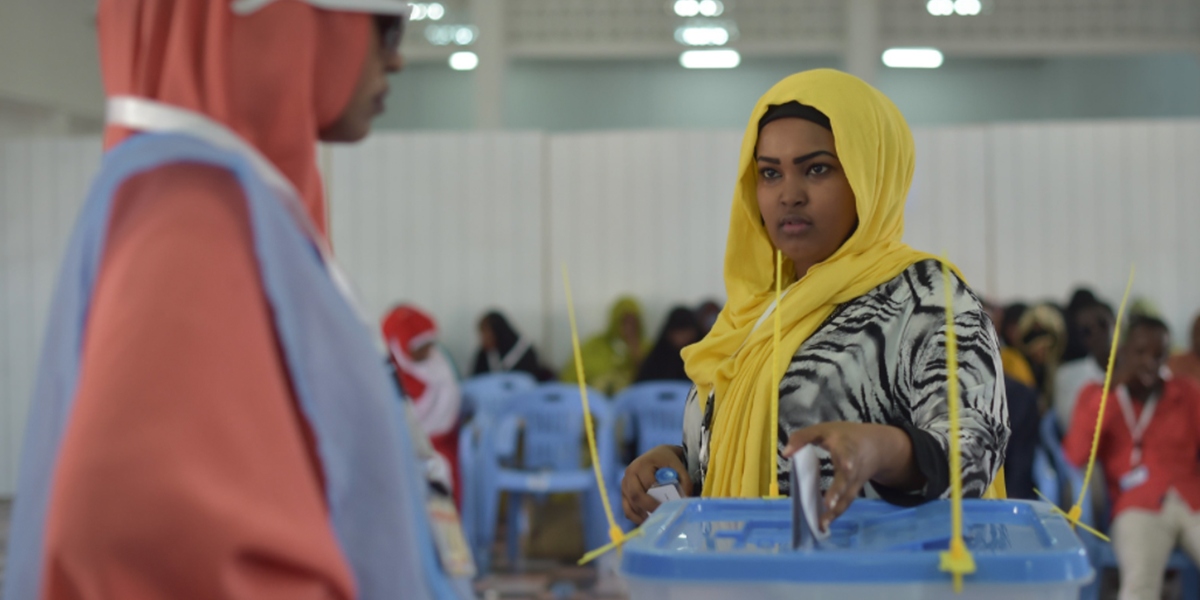News
Planning is Easy, Implementation is the Real Skill
Ghana's problems are many, multifaceted and increasingly becoming conflated — a dangerous spot to be in. Citizens' exasperation with business-as-usual in a country that offered such hope and is seemingly failing to embody its 'Star of Africa' byname, is evident. Ghanaian leadership must do better by its people.

In the book Making Africa Work, authors Greg Mills, Jeffrey Herbst, Olusegun Obasanjo and Dickie Davis recall the story of former Zambian president Guy Scott who was minister of agriculture in 1991. Upon assuming office, he called for reports on how to improve agricultural sector performance in the country and received a mountain of papers, yet very little of what had been recommended, he recalled, had happened. Planning but no delivery.
It is common knowledge that African countries face the challenge of a lack of financial resources (debatable, yes), a poorly capacitated civil service to deliver, and most importantly a lack of political will to set priorities and make the necessary tough choices to achieve them. These have made delivery of plans necessary for growth and development challenging. Arguably, it is difficult for a government to deliver meaningful change over a single term in office. Nevertheless, often politicians can be blamed for indulging short-term political interests to the detriment of the long-term decisions needed to tackle the country's problems. This dilemma calls for a more focused method that seeks to deliver results attuned with term limits.
What is the plan? “Every time a political party comes into power, they reverse what the other did, and we just go back to square one.” That is perhaps one of the most common transcontinental phrases on the African continent. And it is not for lack of knowing what to do. African countries know what to do and in sound detail, no thanks to decades of “long-term development plans”, numerous international consultancies and engagements with the likes of the World Bank, International Monetary Fund, etc. There is no shortage of national development plans across the continent; the record of implementing their objectives though is rather poor.
Why might that be? Because a lot of the continent's plans are general and without time constraints, accountability structures or the assessment metrics needed to properly assess them. Instead, what they seem to have are frameworks that demonstrate a thorough understanding of the issues at play in more words than one may argue is necessary, and some ideas around potential solutions to fixing them. But, if there is one thing these plans are not, it's actionable. Many countries continue to buy into general and vague language around “building an industrialised and resilient economy” and “investing in human capital development”, routinely compounded by catchy political gimmicks. Similarly, a culture of political party manifesto-led development is endemic.
Take for instance Ghana. Its Long-term Development Plan, according to the National Development Planning Commission's 2015 documents, observes, among others, that “it will ensure that national development is not centred on sectional political party manifestos; manifestos must rather be aligned to the Plan. It will reduce the party politicisation of our development process. It will serve as a holistic basis for the assessment of the performance of successive governments. A development plan which is national in character stands a greater chance of being adhered to by successive governments than a sectional policy.”
Apart from spending considerable internet space describing why a long-term plan is needed rather than outlining, expanding and spelling out the actionable details of the nation's plan, assessing the development planning agencies publications can be a bit of a let-down.
Among the numerous vagaries that plague its functioning, the same National Development Planning Commission also states that Ghana's long-term plan will include “10 medium-term plans over 40 years” and that “each medium-term plan will be prepared by successive governments based on their party mandates”. One may wonder, should there not be a prioritisation of an apolitical plan, medium- or long-term? What happens when party mandates and accompanying manifestos contradict or deviate from the path needed for the country to grow?
In a recent interview on what it would take to make Singapore's Smart Nation vision a success, Prime Minister Lee Hsien Loong, the country's third prime minister and eldest son of founding father Lee Kuan Yew, shared one of the reasons the nation is one of the greatest economic bastions in modern-day history: “Our mystery shoppers to government websites are kept busy, and once in a while, I join them myself,” he quipped. He added that “it is not just improving the software but rethinking and streamlining the underlying processes to focus on the essential requirements and deliver the services in a customer-oriented way”. Attention to detail is important.
It's not just granularity that makes Singapore tick. More than anything, its continuous transformation and development show the importance of careful planning and matching words with actions. Since the 1960s, Singapore has been guided by jobs and housing, and better infrastructure (software and hardware), and it's delivered on them. For instance, Singapore now has one of the highest home ownership rates in the world. There are more than one million Housing and Development Board apartments across the island, home to more than 80% of Singapore's resident population, with several in the works to meet its growing demands as well as maximise land use. Its success illustrates the necessity of legitimacy through performance and delivery: that those in power are driven to deliver what the people need, and the people, in turn, keep them in power because they deliver.
Ghana's problems are many, multifaceted and increasingly becoming conflated — a dangerous spot to be in. But addressing this is not unheard of, many others have done it. Citizens' exasperation with business-as-usual in a country that offered such hope on the continent and is seemingly failing to embody its “Star of Africa” byname, is evident. Ghanaian leadership must do better by its people.
To do better, government, private and civil society need to figure out what the blueprint is, where everyone fits, and how to go about achieving it.
Some ideas on managing this process include:
Identify the basics: What should the priorities be? Where are the biggest pain points? 50.4% of Ghanaians cite unemployment as the most important challenge in the country, compared with 34.4% in 2014. That, for example, is an entryway for discussions around how to get Ghana to work for Ghanaians. In addressing this, setting clear targets and making the difficult decisions that would allow them to become a reality is important. Similarly, as much as plans need to be realistic, so must they consider the political economy and vested interests of the country. Without understanding who holds the power, who is likely to push back and why, and how to incentivise and re-incentivise political buy-in, the lower the chances of implementation and thus success.

A plan crafted and decided on by elites only is dangerous, especially one where elites are far removed from the realities of the everyday citizen.
Focusing on people: Once the basics are outlined, prioritising the conditions needed to get the basics rolling is important, especially the people. When Singapore, for instance, acknowledged its human capital deficit in the late 20th century, they made sure that in government, the best and brightest were recruited, paid properly, and fully supported to execute their tasks, in addition to investing heavily in education to ensure a competitive people pipeline (for which they are still reaping dividends today). Unfortunately, in most African countries, investing in education is the only focal talking point. Even that is done abysmally because implementation and the resources needed to succeed are a sparse occurrence. Unsurprisingly, while Singapore ranks second in the international educational outcome ranking, the Programme for International Student Assessment, Morocco is the only African country to feature in the list of 78 nations. Without appropriately skilled people with the know-how to achieve targets and plans, success is unlikely. Focusing on the people is necessary to get implementation right. Where domestic talent is limited, targeted plans can be made to attract foreign talent, better yet from the diaspora who often seem to excel in faraway lands.
Pragmatism over ideology: Ghana's plans, as much as that of any other African country, need to be specific, achievable and actionable. While a long laundry list may seem tempting and give the impression of being more comprehensive, it risks ignoring the realities — capacity and capability — that governments face in practice. Not only does it leave so many aspirations unmet, it often leads to disappointment among the populace who start to mistrust the words of politicians. In Ghana for instance, a recent Afrobarometer survey found that the number of people who trust parliament/national assembly has fallen by 10 percentage points since the last survey in 2014. This is unfortunate because most Ghanaians, in the same survey, prefer and support democracy. Thus, in a world where populism is on the rise and more authoritarian modes of rule appear “intriguing”, creating a substantive democracy that caters to and responds to the needs of the people cannot be overstated. We can achieve this by being more practical with where and how we choose to expend resources.
Localisation is important: Development has increasingly become a local, bottom-up and collaborative approach, and for good reason. A plan crafted and decided on by elites only is dangerous, especially one where elites are far removed from the realities of the everyday citizen. It is thus unwise to exclude the population from decisions around policy priorities that dictate and affect their everyday lives. Where there's domestic buy-in and people see where and how they fit into the plan, the chances of them being invested and thus willing to see it through are higher. Research also shows that a sense of community designed and sustained through the dynamic of kin and non-kin networks is a critical prerequisite to effectively crafting a local development strategy. Localisation is important.
Timing and timelines: Without strict timelines and accompanying structures of accountability to ensure implementation, all plans will face the same fate, amount to nothing. Specific dates for delivery, implementation and evaluation are key.
There are several other options to consider but in all these it should go without saying that creating a plan is not the end of the process. If successfully done, it is the beginning of a guided and iterative process to address the most important problems, reorder scarce resources and create an inclusive structure — government, private and civil society — motivated to make development a reality. Planning is easy; implementation is the real skill. Thus, we must plan well to be able to implement. Creating a responsive and accountable social compact around the what, who and how of development will allow for better implementation and serve Ghana — and the 54 others on the continent — well.
This article was originally published on Daily Maverick. (Photo: Muntaka Chasant)


